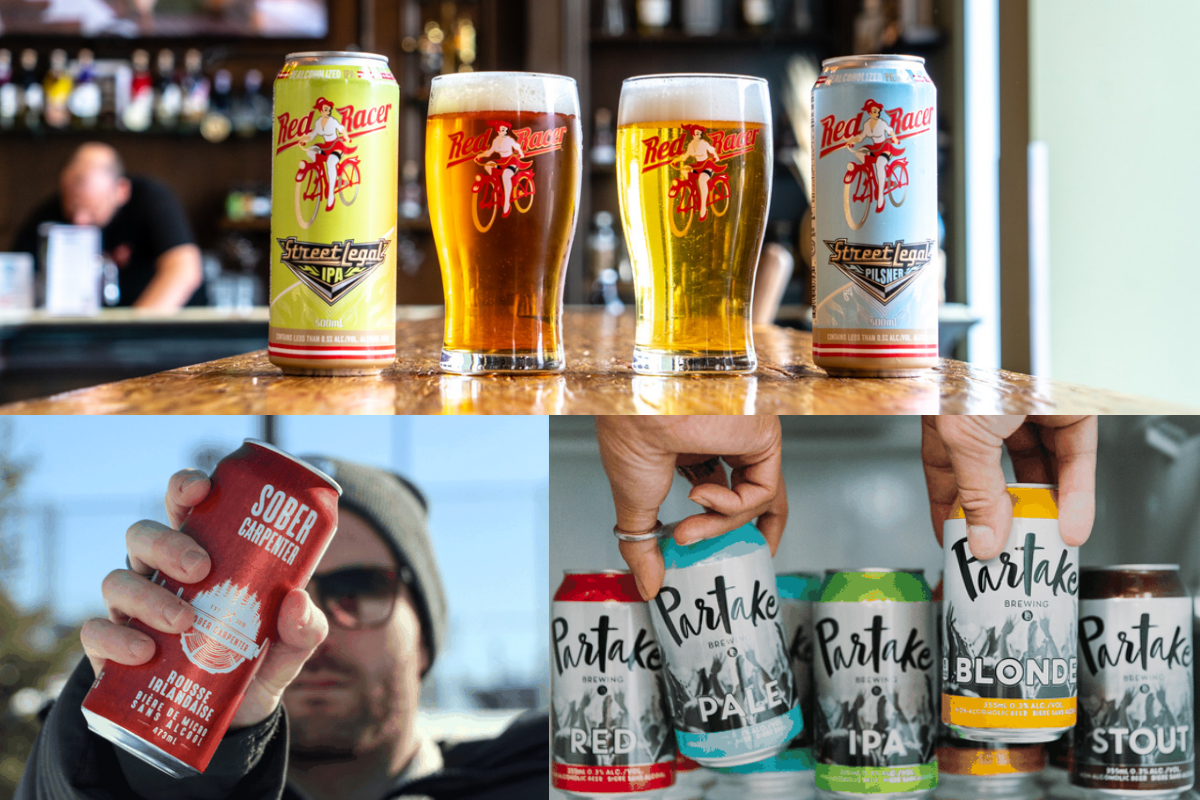
As de-alcoholized and non-alcoholic beer continue to hit the market, the problem that companies are always looking to solve is to make these products taste great while also boasting low calorie counts and catering to a health-conscious drinker. The Canadian craft brewers are now hitting the ground running in search of the perfect recipe that will help achieve just that and give them a piece of the pie that so far has been dominated by the big breweries.
“Consumers are starting to know the ingredients, the hops, the malts, that are used … they want to drink higher-quality products,” said Nicolas Gagnon, one of the founders of Montreal’s Sober Carpenter. “Back in the day the most negative comment on non-alcoholic products was that it didn’t taste good … now that they have options that are just as tasty as alcoholic beer, without the alcohol, now it’s not a sacrifice anymore, it’s a pleasure.”
And with the growth in the market comes a range of new and interesting flavours. A recent report from Goldman Sachs says the low- and no-alcohol (NoLo) beer market in the United States is worth just $580 million in retail sales. The total beer market is more like $80 billion. But, by 2025, they project, NoLo beer could reach $3 billion in retail sales. The reasons for this potential growth have everything to do with technological advancements and consumer interest.
“A lot of the momentum behind the category is from millennials and Gen Z who, in some ways, they reject the longstanding message that the alcohol industry was putting out there, which was, you have to drink alcohol to be accepted, to have fun, to be normal.” said Ted Fleming, the founder and CEO of Partake Brewing.
Fleming credits Partake in being the trailblazer in the non-alcoholic craft beer industry in Canada. After being hospitalized in 2010 because of Crohn’s disease, he opted to live, eat and drink healthier, but what to do about his love of craft beer. “When you take something away like drinking a beer you realize how much of a social lubricant it is and how comfortable it makes you feel having a beer versus a water,” Fleming said.
In 2013, he began importing non-alcoholic beer from Europe, and sold it on an online store. He then approached several breweries about creating it, but was told there was no market in Canada.
“In hindsight, they were all doing me a favour, which pushed me towards, OK, well, I’m going to tackle this myself,” Fleming said.
“De-alc beer seems to be taking off now,” said Gary Lohin, brewmaster at Central City Brewers and Distillers in British Columbia.“Maybe there’s never been a real good product that people liked.”
Non-alcoholic beer uses special yeast that doesn’t produce much alcohol and de-alcoholized beer has the alcohol removed after it’s brewed; but, the equipment to strip alcohol from a regular beer is expensive, said Lohin, so a smaller brewery that wants to get into it may need to go the non-alcohol way, which may not have as pure a “beer” taste.
Luke Chapman, the interim president of Beer Canada, an industry group, said the market is still “very small,” and accounts for less than two per cent of total beer sales in Canada. During the pandemic, though, sales grew by 60 percent and they expect the trend to continue.
“Definitely a lot of excitement, a lot of innovation and also a lot of consumer interest and demand,” Chapman said.
Photos courtesy of Central City Brewers and Distillers, Sober Carpenter and Partake Brewing.
